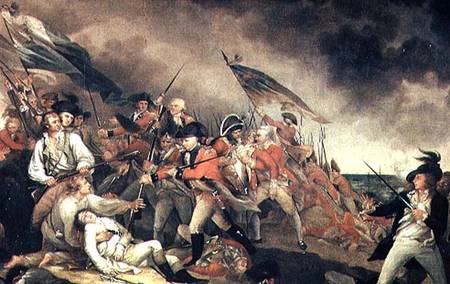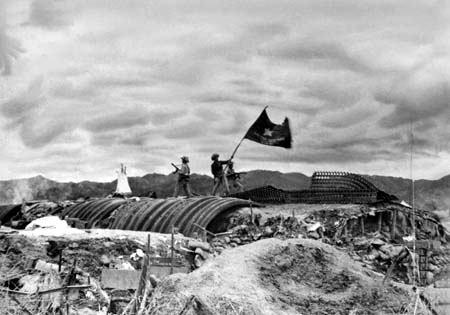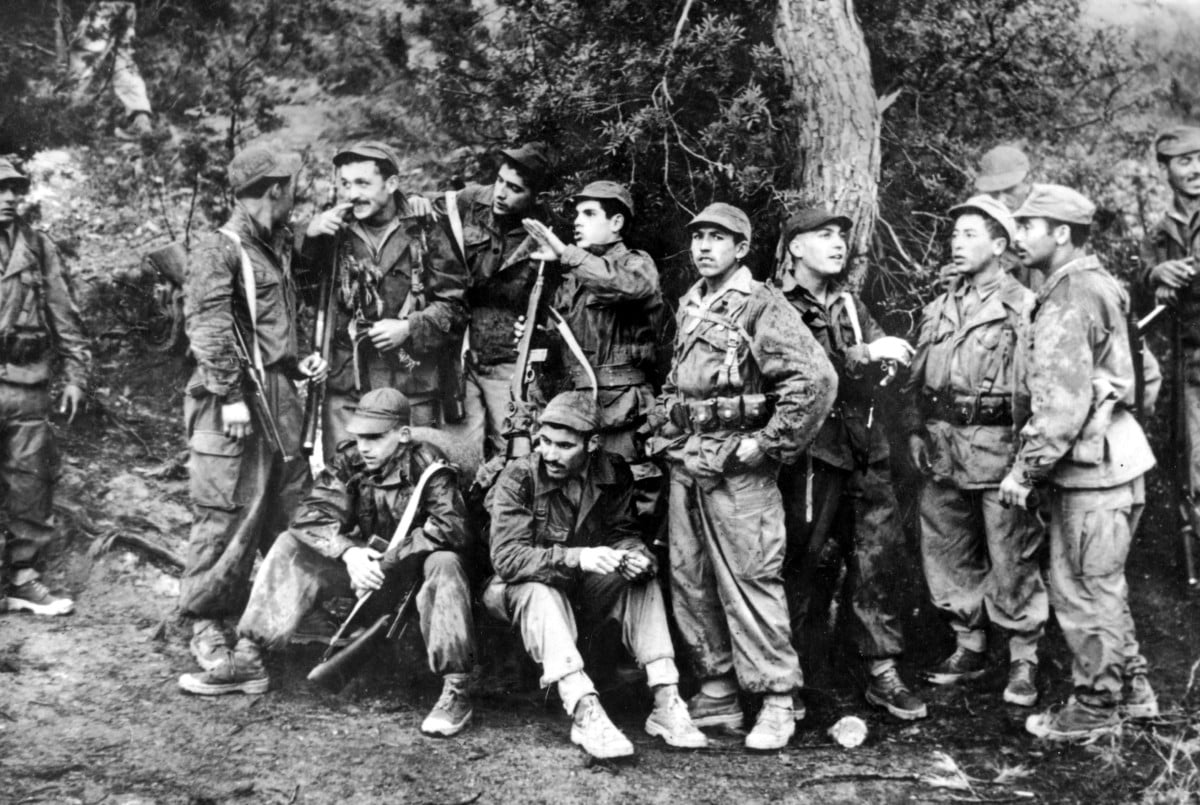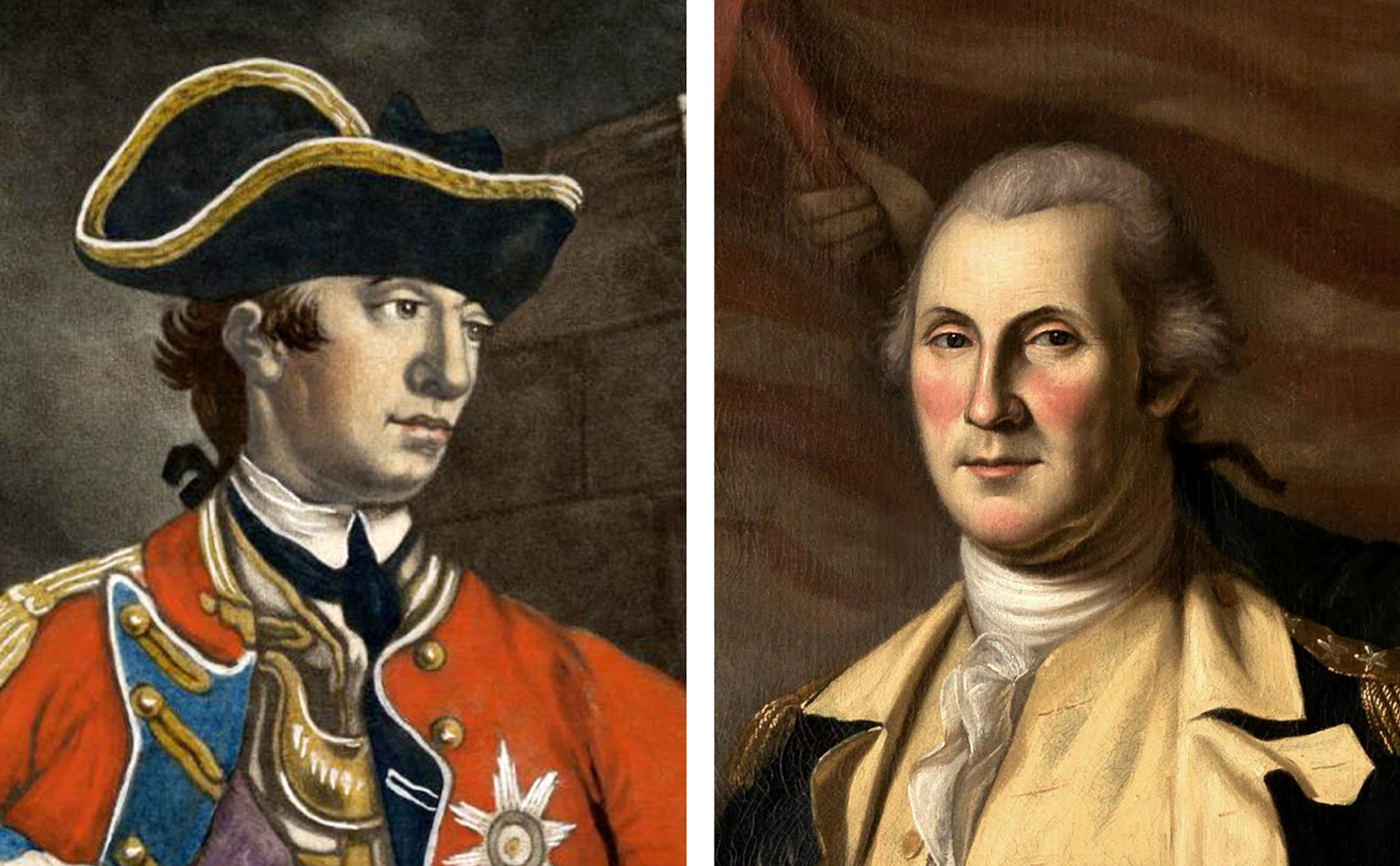"Historian Bernard Fall, still a leading authority on the French Indochina War even 70 years later, wrote about this pervading myth in his work, Hell in a Very Small Place: The Siege of Dien Bien Phu, effectively riposting any claims to the contrary through French Legionary archives and personal interviews." The following article, originally published in the UNRV Ancient Roman Empire Forums by User Sassinid Azatan, debunks the ten most common myths about the last major battle in French Indochina.
Everything about Tactical Wargaming at its finest | Campaign Series | WinSPWW2 | WinSPMBT | Scenario Design | AAR | Military History
Friday, 19 July 2019
Thursday, 11 July 2019
Rethinking Counterinsurgency | A Case Study of Boko Haram in Nigeria
A thesis submitted by
Samson Eyituoyo Liolio, Nigeria. Abstract: "The issue of Boko Haram in Nigeria has become a threat to both internal and international
security with ever-growing violence and attacks on security forces, civilians, churches, media
houses as well as international bodies such as the United Nations. With the increased
numbers of cadres, improved and sophisticated weaponry, suicide bombing and well organised guerrilla tactics, Boko Haram’s challenge to the Nigerian state now also stretches
across the entire 36 states of Nigeria, thus affecting its economic and social-political growth.
With an aim of finding a solution that could lead to success in fending off the Boko Haram
insurgency, this thesis explores the economic and political-cum-military forces at play
between the Nigerian state and Boko Haram. It tries to investigate the apparatus of
counterinsurgency earlier employed by the Nigerian state, thus also seeking to explain the
possible counterproductive result or failure of counterinsurgency."
Wednesday, 10 July 2019
Operation Husky - The Campaign in Sicily
This is a case study, by Jon M. Swanson, LTC, USAF. Abstract: "The Allied decision to invade Sicily following the successful operation in North Africa was crucial to the conduct of World War II. The commitment of such a large force to
continued operations in the Mediterranean theater meant that the cross-channel invasion from Great Britain into northwest Europe would have to be delayed. If Sicily was chosen as the next step, it would come at the expense of other options favored by many political and military leaders.The American military commanders strongly favored a cross-channel invasion at the earliest possible opportunity. This meant that this invasion force would be the first priority for troops, shipping and equipment. On the other hand, the British favored an indirect approach that would see a major effort continue in the Mediterranean."
Tuesday, 9 July 2019
Counterinsurgency - The Hogard Doctrine
 An interesting publication (in French) about a perhaps underrated (or forgotten?!) French COIN expert - "The concept of subversive warfare has
once again come to resemble the one
that had been paradoxically advocated
by many leaders of the 18th century: to
defeat the enemy without fighting,” according to
Jacques Hogard. This French military officer belongs
to the generation of lieutenants and captains who
had fought against the already well-established phenomenon that reached its climax during the Cold
War and has since been, in his words, “adopted by
all modern barbarians.” To his credit, he reviewed the
subject coldly and in its entirety, in order to better
defeat it."
An interesting publication (in French) about a perhaps underrated (or forgotten?!) French COIN expert - "The concept of subversive warfare has
once again come to resemble the one
that had been paradoxically advocated
by many leaders of the 18th century: to
defeat the enemy without fighting,” according to
Jacques Hogard. This French military officer belongs
to the generation of lieutenants and captains who
had fought against the already well-established phenomenon that reached its climax during the Cold
War and has since been, in his words, “adopted by
all modern barbarians.” To his credit, he reviewed the
subject coldly and in its entirety, in order to better
defeat it."Monday, 8 July 2019
Quo vadis Deutsche Marine?
This article, by Alex Luck, gives us an overview about the current procurement situation of the German Navy (Bundesmarine). "On 17th June the German Navy reached a milestone by finally commissioning the first of their new F125-frigates, formally known as the Baden-Wuerttemberg-class. In some regards these ships set a new standard for Germany. "
Saturday, 6 July 2019
A Review of Algerian War of National Liberation
Using the U.S. Army’s
Current Counterinsurgency Doctrine, is a publication, by Karl Goetzke, COL, US Army. "The Algerian War of National Liberation is a classic counter-insurgency operation. A
rebellion arising from within the Algerian population was transformed into an insurgency by the
incorporation of an armed political campaign. Underlying this rebellion were socio-economic
factors that typically galvanize any political campaign (e.g., distribution of wealth, participation in
political intercourse). The catalyst for rebellion and resistance was a popular desire to end the
French occupation of Algeria. While the indigenous population of Algeria was overwhelmingly
Islamic, religious ideology was not a primary mobilizing factor behind the rebellion, unlike the
current insurgencies faced in the War on Terrorism."
Friday, 5 July 2019
Commanders-in-Chief of the American War for Independence
A leadership study of George Washington and Sir William Howe, a thesis by Haydn. J. White, MAJ, Royal Marines. "The leadership of George Washington and Sir William Howe had a significant
impact on the formative years of the American War for Independence. As Commanders-in-Chief
between 1775 and 1778, what were the characteristics of their leadership, and how did this effect
the prosecution of the war?"
Thursday, 4 July 2019
The War of Independence | 1775-1783

"... or the American Revolution that was no Revolution: Another look at the Reasons", is a monograph by Hans G. Jansen. Preface: "To many, my thesis will appear as a criticism of the United States and our Founding
Fathers. It is criticism only insofar that I approach all aspects of history with a critical mind.
Wednesday, 3 July 2019
The Battle of Königgrätz 1866 | The Evolution of Operational Art
This monograph, by Charles D. Daves, LTC, Signal Corps, US Army, focuses on "The Königgrätz Campaign offers an outstanding example of the offence operating on exterior lines and the use of the most advanced technology of the era in every phase of the campaign. With operational art as the focus, the importance of defining a clear operational end state and balancing the end state with means, ways, and risk will be analysed. This analysis includes a discussion of Moltke's application of certain theoretical aspects of operational art; these include exterior lines of operation, center of gravity, offence, decisive battle, and the interrelationship of strategic, operational and tactical activities.
Tuesday, 2 July 2019
Operational Design | Distilling Clarity from Complexity for Decisive Action
Subscribe to:
Comments (Atom)






